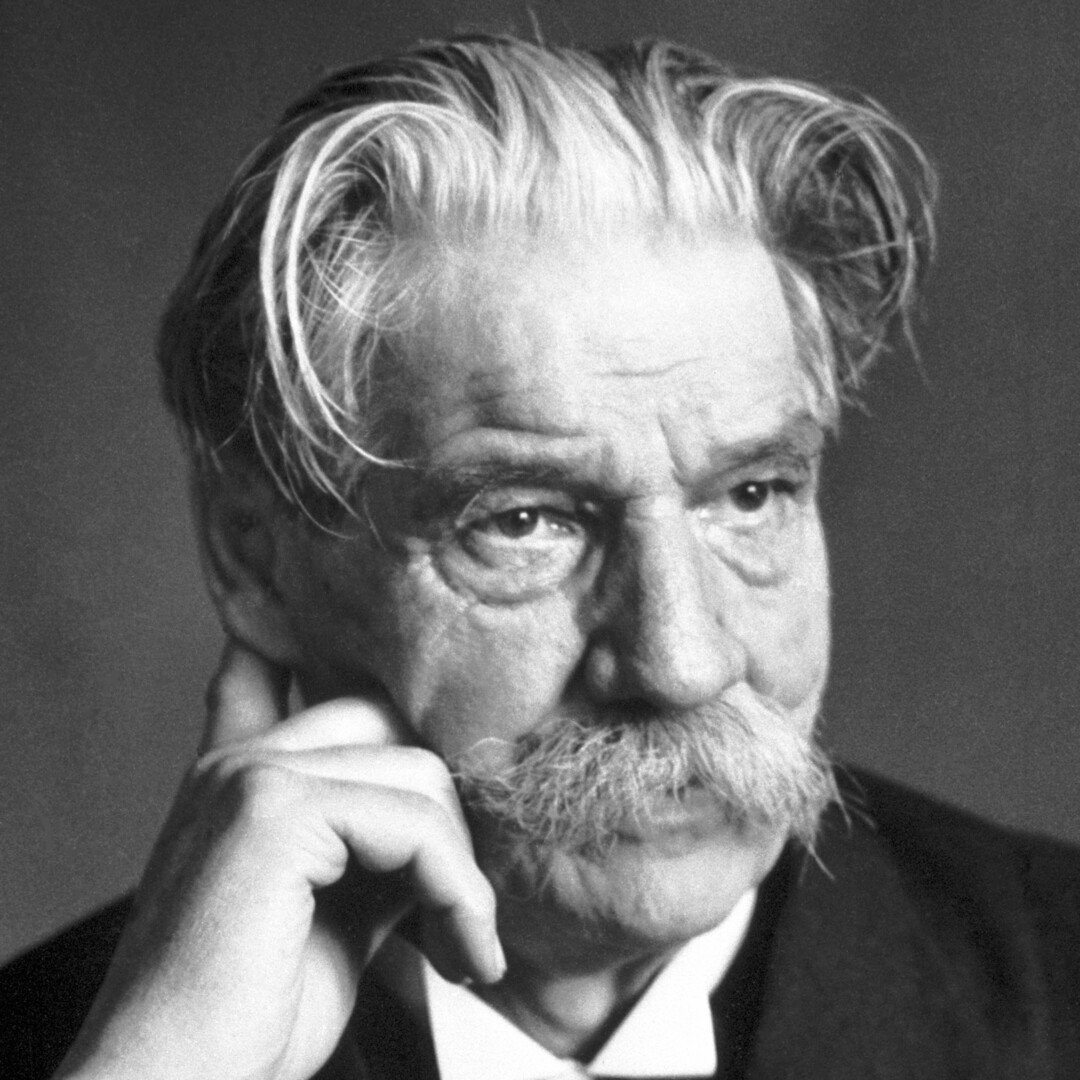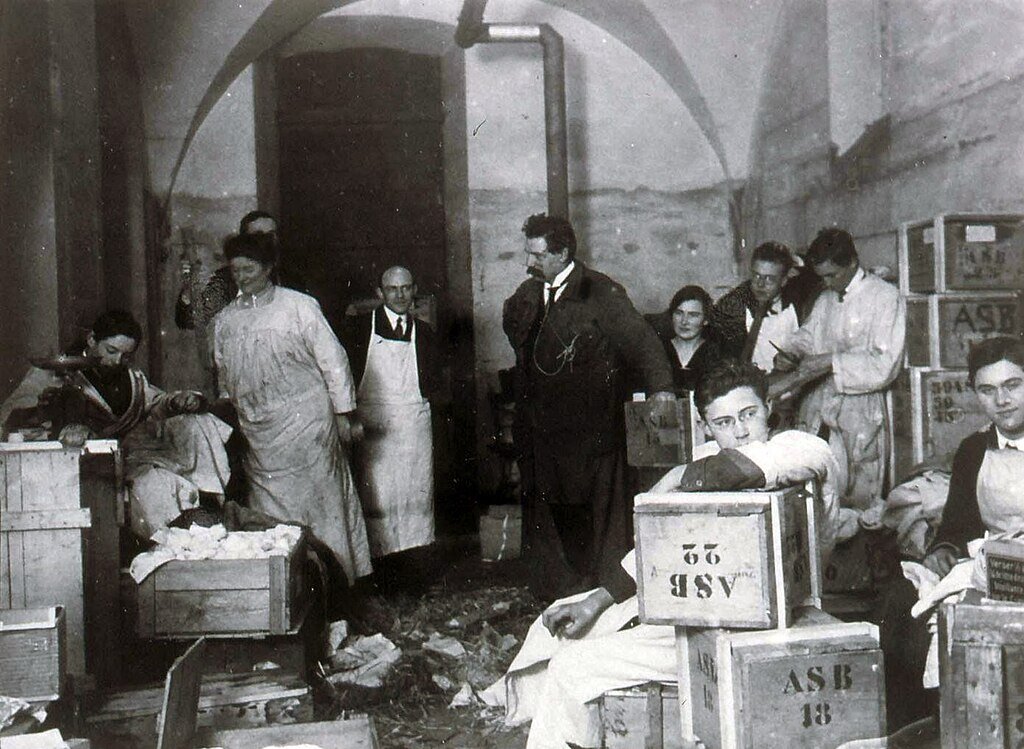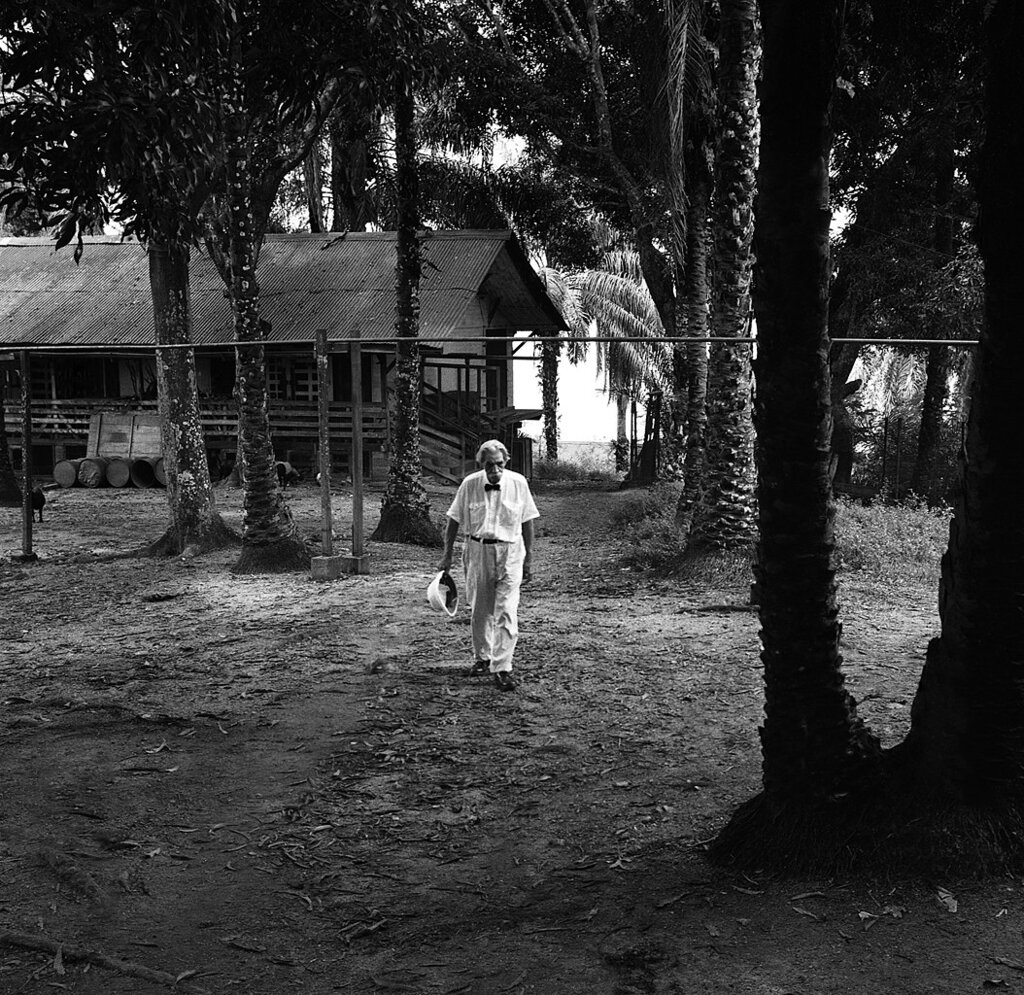Albert Schweitzer
Speed read
Albert Schweitzer was awarded the Nobel Peace Prize for his philosophy of “reverence for life” and tireless humanitarian work.

Full name: Albert Schweitzer
Born: 14 January 1875, Kaysersberg, Germany (now France)
Died: 4 September 1965, Lambaréné, Gabon
Date awarded: 30 October 1953
Minister turned doctor in Africa
A theologian, Albert Schweitzer changed his course after reading of the desperate need for medical assistance in the French colony of Gabon. He later wrote, “I no longer needed to search for my path”. He dedicated himself to medical studies, seeking to build and run a hospital in Africa to alleviate suffering. On Long Friday 1913, Dr. Schweitzer and his wife Hélène Bresslau, a trained nurse, set off for the Lambaréné mission station on the Ogowo River. The hospital in Lambaréné became his life’s work. He raised funds for materials, medicine and equipment. He also donated all his prize money to the hospital. Schweitzer showed that it is possible to create trust and communication between people, regardless of nationality or race. His efforts have served as an example to others.
"The saga of his life and work provides one of the greatest sources of inspiration to the world’s efforts to create better conditions for the people."
Nomination proposal submitted by four members of the Norwegian Storting, 20 January 1950.

Theologian and philosopher
Albert Schweitzer was a devout Christian. However, he believed that humans as rational beings have the right to independent thought and reason on all matters, including the basic tenets of Christianity. His liberal outlook was not endorsed by the leaders of the mission company, and he had to promise to serve only as a physician, not a minister, at the mission station in Africa. Schweitzer sought to preserve all life. His philosophy was completely life affirming, and is summed up by his motto: “Reverence for life”. He published several books on this subject.
A skilled musician
Schweitzer began to play the piano at the age of 5. Three years later, he started standing in for the organist in Gühnsbach, the tiny Alsatian village in which he grew up. Music was a crucial part of Schweitzer’s life. He studied organ while studying theology, becoming an accomplished Bach interpreter. In 1905, he published a major work on Bach in French and German. Schweitzer held organ concerts internationally to finance his studies and raise funds for his hospital in Africa. However, he refused to set foot in Germany after Adolf Hitler’s rise to power, and he declined to attend the Bach Festival in Leipzig in 1935.
"Albert Schweitzer will never belong to any one nation. His whole life and all of his work are a message addressed to all men regardless of nationality or race."
Gunnar Jahn, Chairman of the Nobel Committee, Presentation Speech, 10 December 1953.

The hospital in Lambaréné
The Schweitzers built the hospital from scratch. The first weeks they used a chicken coop as a consultation room before erecting a corrugated iron barrack which also housed an operating theatre and a small pharmacy. Bamboo huts were put up around the hospital to shelter the droves of people seeking help. Dr. Schweitzer treated patients suffering from a host of illnesses: malaria, encephalitis, leprosy, dysentery, hernia and heart failure. Schweitzer focused on promoting bonds of trust between the hospital and its patients. With respect and gratitude he was dubbed the “Grand Docteur”.
Albert Schweitzer in Norway
White-haired and clad in black, the aging Albert Schweitzer made an indelible impression on Norway. One Norwegian newspaper wrote that the “breath of God’s spirit” entered the room when the Nobel Peace Prize laureate was present. Word soon spread that Schweitzer had already spent his prize money on materials and equipment for the hospital in Lambaréné. Norwegian newspapers launched an appeal for a “people’s peace prize”, and when Schweitzer left a few days later he carried a check for NOK 310,000, nearly twice the award sum of the Nobel Peace Prize.
Learn more
Albert Schweitzer (January 14, 1875-September 4, 1965) was born into an Alsatian family which for generations had been devoted to religion, music, and education. His father and maternal grandfather were ministers; both of his grandfathers were talented organists; many of his relatives were persons of scholarly attainments ...
Disclaimer: Every effort has been made by the publisher to credit organisations and individuals with regard to the supply of photographs. Please notify the publishers regarding corrections.
Nobel Prizes and laureates
Six prizes were awarded for achievements that have conferred the greatest benefit to humankind. The 14 laureates' work and discoveries range from quantum tunnelling to promoting democratic rights.
See them all presented here.
